As a professional writer, I have quite a few qualms about new technology that aims to (or will inevitably) make workers like me redundant. And I’m certainly not alone in this fear with forms of artificial intelligence (AI), especially generative AI, creeping in from all sides. That is, the more this tech is used, the more it learns to do. But to say that AI is simply and definitively replacing all the workers it can might be too simplistic. As Nahia Orduña notes in this article for Harvard Business Review, “AI will not steal your job if you know how to make the best of it […] The truth is that AI can augment the capabilities of workers.” And AI is not a tool that is exclusively useful for copywriters like me. Many AI tools can actually improve countless everyday tasks within the workplace, including those within the recruitment process.
But exactly how effective is AI in these tasks? What is the extent to their uses in these processes? And will they entirely replace all other platforms used in recruitment from now on?
Come with me as I test out ChatGPT to see if and how it can improve your recruitment processes.
Can ChatGPT Improve Your Recruitment Process?
Arguably the most popular generative AI tool these days, ChatGPT is proving to be a particularly effective tool for countless tasks, including writing copy for business and entertainment, performing search functions, summarizing material found online, and even translating text from one language to another.
With all that ChatGPT can do, wouldn’t it only make sense that it could also make your recruitment processes easier, faster, and more cost-effective?
While this generative AI tool is indeed very impressive and continues to grow more convincingly human in its language every day, the reality is, it was not built to replace all human resources (HR) software (let alone recruiters themselves). However, the consensus on LinkedIn seems to be it’s not entirely useless for recruiting. In fact, there’s an entire community on LinkedIn who share ways to use and updates on using ChatGPT in recruiting.
And these use cases are very convincing ones! After all, time is money, so why not make the process overall faster than it would without AI? But how far can we take this tech?
What Recruitment Processes Can AI Automate?
Many of the steps required in the recruitment process will inherently require something much more specialized. But that’s not to say that AI can’t improve your recruitment process!
So, what can a generative AI tool like ChatGPT do to help? Let’s test the following to see how well ChatGPT can do the following tasks.
1. Research existing job descriptions and find relevant keywords
Even if you know exactly what you want in an employee, you might still be missing key information in your job description. And this will make your search less effective and consequently, your candidates less precisely suited for a role. So, using AI to find all the relevant keywords for you to use isn’t a bad idea.
To test out how well it can do this step, I asked ChatGPT to “write me a job description for a junior copywriter.” Here’s what it offered:
Job Title: Junior Copywriter
Company Overview: [Insert company name] is a dynamic and growing [insert industry] company, committed to providing exceptional service and innovative solutions to our clients. We are looking for a Junior Copywriter to join our team and help us create high-quality content that resonates with our target audience.
Job Summary: As a Junior Copywriter, you will be responsible for creating compelling and engaging content that communicates our brand’s message to our target audience. You will work closely with the marketing team to develop content for various channels, including our website, social media, email marketing, and advertising campaigns. You will also assist in the development of other marketing materials, such as brochures, presentations, and case studies.
Key Responsibilities:
• Write high-quality, engaging, and persuasive copy for various marketing channels
• Work collaboratively with the marketing team to develop and implement content strategies
• Conduct research and stay up-to-date with industry trends to ensure the accuracy and relevance of content
• Edit and proofread all written materials to ensure accuracy, clarity, and consistency
• Assist in the development of marketing materials such as brochures, presentations, and case studies
• Ensure all content is SEO-friendly and optimized for search enginesRequirements:
• Excellent writing and editing skills, with a strong portfolio of work
• Ability to write compelling copy that engages and persuades the target audience
• Basic understanding of SEO and content marketing principles
• Strong attention to detail and ability to work under tight deadlines
• Good interpersonal skills and ability to work effectively in a team environment
• Bachelor’s degree in marketing, communications, journalism, or a related fieldIf you are a creative thinker with a passion for writing and are looking to jumpstart your career as a copywriter, we encourage you to apply for this exciting opportunity at [insert company name].
To see if it could offer me more specific language I could use to find a candidate for a more specific role, I asked ChatGPT to find me 5 keywords specific to software engineering in AI. Here’s what it came up with:
1. Machine learning
2. Natural language processing
3. Deep learning
4. Computer vision
5. Neural networks
You could theoretically then use these terms to improve the audiences your job description or other posts reach. Not a bad starting point for your recruiting process, am I right? Let’s move onto the next step: filtering candidates.
2. Determine how well-suited a candidate is for a job
Since we at Workwolf rely more on comprehensive approaches to filtering candidates, I was skeptical about how effective this tool would be at measuring a candidate’s likelihood to be well-suited for this job based on the job posting.
Following the example Occupop set in their article tackling ChatGPT, however, I tested this task out with the above job description for the role of a copywriter. I then offered what I thought would be relevant keywords one might use on a resume for this position. This included an M.A. in journalism, a former position writing at Google, three years of experience using UberSuggest, and five years of experience as a blog writer with a focus on SEO.
And like it did for the team at Occupop, ChatGPT offered me a list of pros and cons for this imaginary candidate.
In some ways, I was impressed by this list. For one, the tool knew what UberSuggest was and actually included information on it in case I was unfamiliar with it. For another, it recognized this would be an asset because of its use in search engine optimization for copywriting and marketing.
Overall, however, the tool proved to me that merely filtering candidates for keywords is not thorough enough. Sure, it might be helpful to see in the form of a pros and cons list what a candidate is missing from their resume. But by no means is this a comprehensive filtering approach.
The problem is this sorting process is only using a limited amount of information. But even a longer, more thorough resume will still not address all practical workplace related concerns, like habits and soft skills required for the role and organization’s environment. For me, this step is something that can’t be as simply replaced with this tool like ChatGPT.
3. Develop relevant interview questions to improve candidate filtering
This, I think, is a much more reasonable task to ask of ChatGPT. I asked it to come up with 10 questions I could ask a senior software developer in a job interview. I also asked it to do so by using specific keywords that are relevant to the field, and here’s what it offered:
1. How familiar are you with object-oriented programming and design patterns?
2. Can you explain your experience working with version control systems, such as Git?
3. Have you ever worked with cloud platforms, such as AWS or Azure? If so, can you give an example of a project you worked on and your role in it?
4. Can you explain your experience with database management systems, such as MySQL or PostgreSQL?
5. Have you ever implemented continuous integration or deployment processes? If so, how did you approach it?
6. Can you give an example of a particularly challenging bug you had to solve and how you approached it?
7. How do you approach testing and quality assurance in your development process?
8. Have you ever worked with microservices architecture? If so, can you give an example of a project you worked on and your role in it?
9. Can you explain your experience working with front-end technologies, such as React or Angular?
10. How familiar are you with containerization, such as Docker or Kubernetes? Have you ever implemented a containerization strategy in a project?
This might be particularly useful for filling a job position in a field that your organization does not already have an expert. Without the right resources or a fellow employee to guide the interview, your search may take longer than necessary, or may even lead to a mis-hire. Using the right language and asking the right questions can be a good start to getting the answers you need to determine who among your candidates will be best for the job.
4. Write responses to candidates on their job application status
This one seems like a no-brainer. Emails are a low(er)-stakes place for you to be using tools to take over tasks that would otherwise take up your time and brainpower. (Nevertheless, as a copywriter, I must advise you to always proofread anything an AI tool writes for you. Humans make mistakes, and humans are the ones who built and continue to improve these tools. So, they’re by no means beyond making errors, too!)
For this one, I asked ChatGPT to write me an email I can send to candidates who were not selected for a job with us here at Workwolf. Here’s what it came up with:
Subject: Thank you for your interest in Workwolf
Dear [Candidate Name],
Thank you for taking the time to apply for the [Job Position] at Workwolf. We appreciate your interest and effort in submitting your application, as well as taking the time to interview with us.
We received a large number of highly qualified applications, and after careful consideration, we have decided not to proceed with your application. Although your skills and experience are impressive, we have selected another candidate whose qualifications more closely align with our requirements.
We want to assure you that your application was carefully reviewed, and we recognize the time and effort you put into it. We appreciate your interest in joining the Workwolf team and encourage you to keep an eye on our career opportunities in the future.
We value every candidate and want to provide a positive candidate experience. If you have any feedback or questions regarding your application process, please do not hesitate to contact us. We are always looking for ways to improve and appreciate your input.
Thank you again for your interest in Workwolf. We wish you all the best in your future endeavors.
Sincerely,
[Your Name] [Your Title] [Company Name]
Again, not perfect, but not a bad foundation, right? And this all generated within mere moments. Sure enough, the process is the same for creating emails for those you would want to interview again or those who would receive a job offer. So, definitely use this one if you’re looking to cut down on time spent on emailing candidates.
Conclusions on ChatGPT and AI in Recruitment Processes
As much as ChatGPT surprised me with its abilities in HR-based tasks, I still believe this tool is not sufficient for replacing all tools necessary in recruitment processes. It certainly can improve certain tasks (some more than others), as shown above. Nevertheless, it was certainly not built specifically with recruiting and hiring professionals in mind, so it is not (currently) the only tool you will need for finding and hiring the perfect candidate.
What it might pair nicely with, however, is our very own platform and all the tools we have to offer, such as our Digital Work Passports and soft skills assessments.
For example, if you do choose to use an AI tool to sort through candidate resumes to narrow down your candidate pool so you are only considering those with the mandatory requirements. Fair enough. However, you may only narrow down your candidate pool so much with this tool. Instead, you’ll need soft skill assessments that measure candidates on their soft skills and determine their potential for success based on the benchmarks set by your current top performers.
Then, before making any job offers, you’ll want to ensure your top ranking candidate is who they claim to be and have all the necessary qualifications they name on their resume.
Workwolf is a comprehensive platform that has tools that do it all. Match candidates with employers, sort candidates based on how closely their soft skills match your benchmarks, track pipelines with updates in real-time, and do so much more. Join Workwolf with a Workwolf business account and try it out for yourself.







